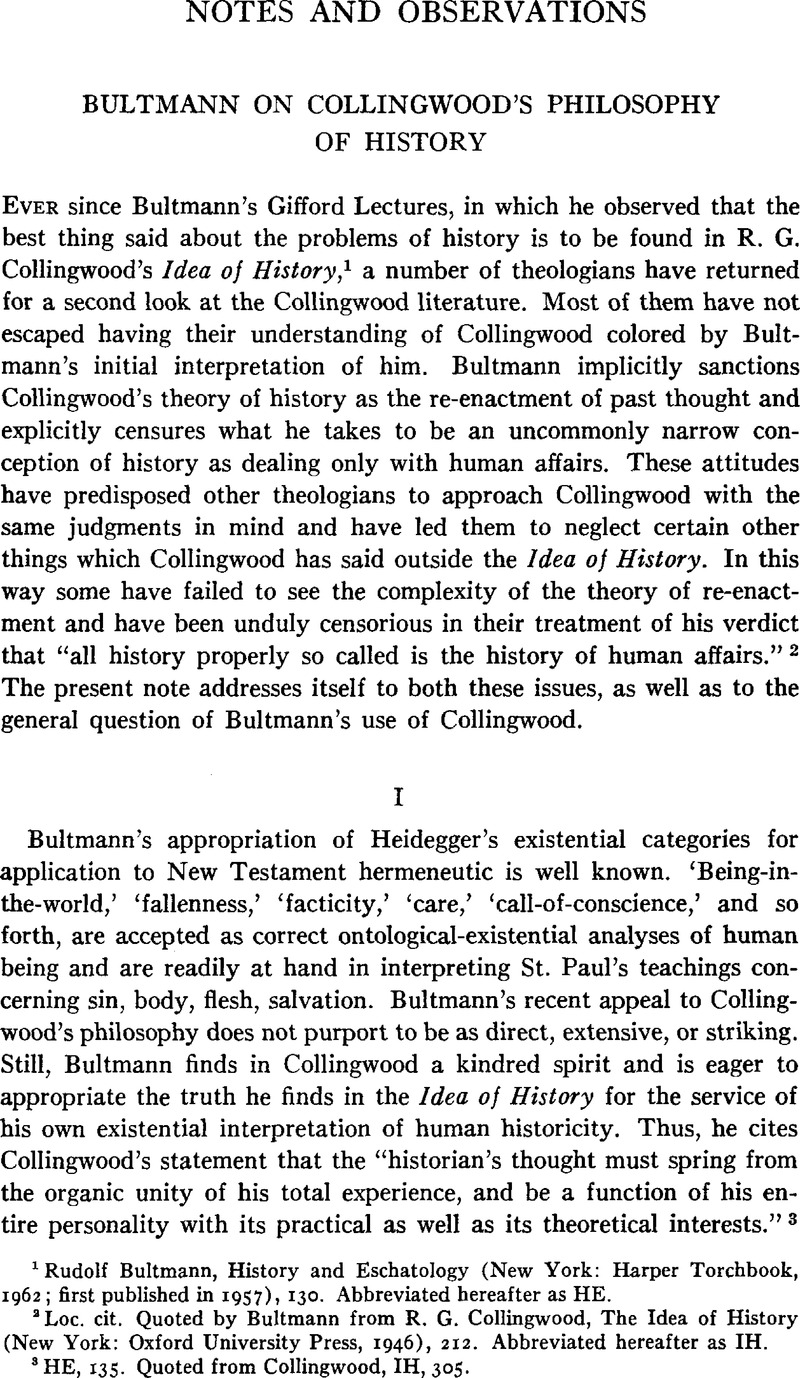No CrossRef data available.
Article contents
Bultmann on Collingwood's Philosophy of History
Published online by Cambridge University Press: 23 August 2011
Abstract

- Type
- Notes & Observations
- Information
- Copyright
- Copyright © President and Fellows of Harvard College 1965
References
1 Rudolf Bultmann, History and Eschatology (New York: Harper Torchbook, 1962; first published in 1957), 130. Abbreviated hereafter as HE.
2 Loc. cit. Quoted by Bultmann from R. G. Collingwood, The Idea of History (New York: Oxford University Press, 1946), 212. Abbreviated hereafter as IH.
3 HE, 135. Quoted from Collingwood, IH, 305.
4 HE, 135. Cf. p. 133.
5 HE, 136. Cf. pp. 144ft.
6 HE, I35f. Cf. p. 133.
7 IH, 213.
8 “It is not only the object of thought that somehow stands outside time; the act of thought does so too: in this sense at least, that one and the same act of thought may endure through a lapse of time and revive after a time when it has been in abeyance.” IH, 287.
9 IH, 288.
10 IH, 284.
11 HE, 119.
12 IH, 312. Note also Alan Donagan, “The Verification of Historical Theses,” The Philosophical Quarterly 6 (1956), 193–208. Cf. Collingwood's treatment of the knowledge of other minds in The Principles of Art (New York: Oxford University Press, 1938), 231, 248, 251, 309, and elsewhere.
13 HE, 130. Quoted from Collingwood, IH, 212.
14 HE, 136f. Or again, Bultmann writes: “not only human actions but also human sufferings belong to history; in a certain sense they are also actions in so far as they are reactions.” HE, 140.
15 HE, 139f.
16 R. G. Collingwood, An Autobiography (New York: Oxford University Press, 1939), 128 n.
17 See HE, 113.
18 HE, 136, 144ff.


